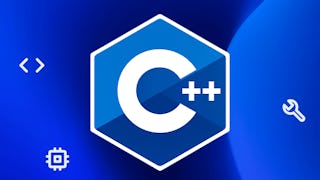- Browse
- Greek Mythology
Greek Mythology Courses
Courses in Greek mythology can help you learn about the pantheon of gods and goddesses, mythological heroes, and the cultural significance of myths in ancient Greece. You can build skills in literary analysis, critical thinking, and understanding narrative structures through the exploration of epic tales like those of Homer and Hesiod. Many courses also introduce tools such as digital archives and interactive timelines, which enhance your ability to analyze texts and connect historical contexts with mythological themes.
Popular Greek Mythology Courses and Certifications
 Status: Free TrialFree TrialU
Status: Free TrialFree TrialUUniversity of Illinois Urbana-Champaign
Skills you'll gain: AI Personalization, MarTech, Online Advertising, Web Analytics and SEO, Data Architecture, Search Engine Optimization, Marketing Automation, Marketing Channel, Content Strategy, Performance Analysis, Consumer Behaviour, Marketing Strategy and Techniques, Social Media Marketing, Driving engagement, Marketing Planning, Digital Transformation, Customer Insights, Emerging Technologies, Experimentation, Data Visualization
4.7·Rating, 4.7 out of 5 stars23K reviewsBeginner · Specialization · 3 - 6 Months
 Status: Free TrialFree TrialStatus: AI skillsAI skills
Status: Free TrialFree TrialStatus: AI skillsAI skillsSkills you'll gain: Cloud Deployment, Software Development Life Cycle, Open Web Application Security Project (OWASP), Istio, Linux Commands, Software Architecture, Application Deployment, Kubernetes, NoSQL, Bash (Scripting Language), Restful API, MongoDB, Shell Script, Django (Web Framework), Object-Relational Mapping, Git (Version Control System), Grafana, Microservices, Data Import/Export, Python Programming
4.6·Rating, 4.6 out of 5 stars53K reviewsBeginner · Professional Certificate · 3 - 6 Months
 Status: Free TrialFree TrialU
Status: Free TrialFree TrialUUniversity of Pennsylvania
Skills you'll gain: Financial Reporting, Return On Investment, Financial Acumen, Financial Data, Capital Budgeting, Financial Statements, Business Modeling, Mathematical Modeling, Finance, Regression Analysis, Financial Modeling, Statistical Modeling, Income Statement, Risk Analysis, Financial Analysis, Spreadsheet Software, Capital Expenditure, Excel Formulas, Microsoft Excel, Corporate Finance
4.5·Rating, 4.5 out of 5 stars17K reviewsBeginner · Specialization · 3 - 6 Months
 Status: Free TrialFree TrialU
Status: Free TrialFree TrialUUniversity of California, Santa Cruz
Skills you'll gain: C++ (Programming Language), Go (Programming Language), File I/O, Data Structures, Object Oriented Programming (OOP), Programming Principles, Software Design Patterns, Debugging, Computer Programming, Unit Testing, Algorithms, C (Programming Language), Program Development, Integrated Development Environments, Graph Theory, Software Testing, Artificial Intelligence, Integration Testing, Software Design, Software Documentation
4.5·Rating, 4.5 out of 5 stars9.6K reviewsIntermediate · Specialization · 3 - 6 Months
 Status: Free TrialFree TrialStatus: AI skillsAI skills
Status: Free TrialFree TrialStatus: AI skillsAI skillsSkills you'll gain: Extract, Transform, Load, Data Warehousing, Web Scraping, Database Administration, Data Engineering, Database Design, Relational Databases, Linux Commands, Data Pipelines, SQL, Database Management, Apache Kafka, Apache Airflow, Bash (Scripting Language), Database Architecture and Administration, Shell Script, IBM DB2, Generative AI, Data Import/Export, Data Security
4.6·Rating, 4.6 out of 5 stars61K reviewsIntermediate · Professional Certificate · 3 - 6 Months
 Status: Free TrialFree TrialC
Status: Free TrialFree TrialCCalifornia Institute of the Arts
Skills you'll gain: Game Design, Video Game Development, Storytelling, Software Design Documents, Ideation, Storyboarding, Writing, Creativity
4.7·Rating, 4.7 out of 5 stars1.3K reviewsBeginner · Course · 1 - 4 Weeks
 Status: Free TrialFree TrialD
Status: Free TrialFree TrialDDartmouth College
Skills you'll gain: Computational Logic, Scientific Methods, Theoretical Computer Science, Logical Reasoning, Physics, Experimentation, Laboratory Experience, Physical Science, Artificial Intelligence, Computational Thinking, Mathematics and Mathematical Modeling, Simulations, Psychology, Science and Research, General Science and Research, Ancient History, Vibrations, Mechanics, Chemistry, Laboratory Equipment
4.7·Rating, 4.7 out of 5 stars39 reviewsBeginner · Specialization · 1 - 3 Months
 Status: PreviewPreviewU
Status: PreviewPreviewUUniversity of Pennsylvania
Skills you'll gain: Scientific Methods, Science and Research, Research, Experimentation, Research Methodologies, Research Design, Data Collection, Peer Review, Simulations, Ethical Standards And Conduct
4.7·Rating, 4.7 out of 5 stars254 reviewsIntermediate · Course · 1 - 4 Weeks
 Status: PreviewPreviewU
Status: PreviewPreviewUUniversity of Pennsylvania
Skills you'll gain: Art History, Ancient History, World History, Anthropology, Research Methodologies
4.8·Rating, 4.8 out of 5 stars1K reviewsIntermediate · Course · 1 - 3 Months
 Status: Free TrialFree TrialC
Status: Free TrialFree TrialCCalifornia Institute of the Arts
Skills you'll gain: Animation and Game Design, Animations, Game Design, Video Game Development, Design, Technical Design, Conceptual Design, Design Elements And Principles, Creative Design, Storytelling
4.7·Rating, 4.7 out of 5 stars1K reviewsBeginner · Course · 1 - 4 Weeks
 Status: Free TrialFree TrialU
Status: Free TrialFree TrialUUniversity of Michigan
Skills you'll gain: Data Structures, Data Processing, Data Analysis, Python Programming, Data Manipulation, Software Installation, Development Environment
4.9·Rating, 4.9 out of 5 stars97K reviewsBeginner · Course · 1 - 3 Months
 Status: Free TrialFree TrialIUI
Status: Free TrialFree TrialIUIMultiple educators
Skills you'll gain: Dashboard, Web Scraping, Pseudocode, Jupyter, Algorithms, Data Literacy, Data Mining, Data Analysis, R (Software), Data Presentation, Correlation Analysis, Pandas (Python Package), NumPy, Data Import/Export, Programming Principles, Predictive Modeling, Data Science, Unsupervised Learning, Machine Learning, Project Management
4.6·Rating, 4.6 out of 5 stars117K reviewsBeginner · Specialization · 3 - 6 Months
In summary, here are 10 of our most popular greek mythology courses
- Digital Marketing: University of Illinois Urbana-Champaign
- IBM Back-End Development: IBM
- Finance & Quantitative Modeling for Analysts: University of Pennsylvania
- C, Go, and C++: A Comprehensive Introduction to Programming: University of California, Santa Cruz
- IBM Relational Database Administrator with GenAI: IBM
- Story and Narrative Development for Video Games: California Institute of the Arts
- Question Reality! Science, philosophy, a search for meaning: Dartmouth College
- Philosophy of Science: University of Pennsylvania
- Wonders of Ancient Egypt: University of Pennsylvania
- Character Design for Video Games: California Institute of the Arts










